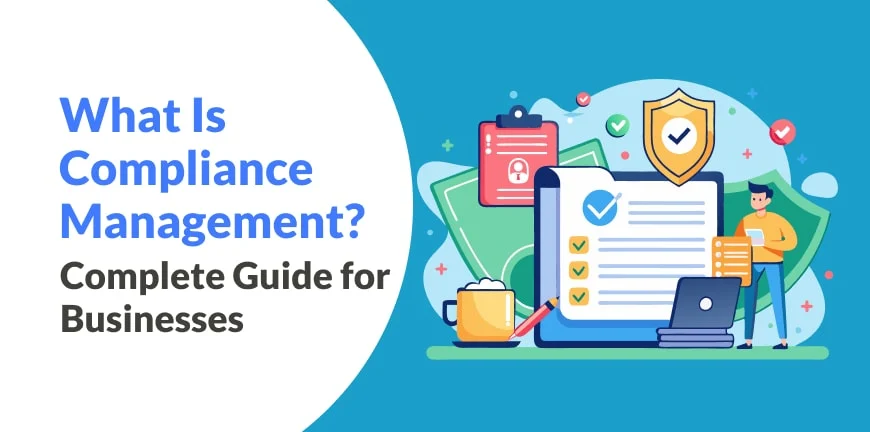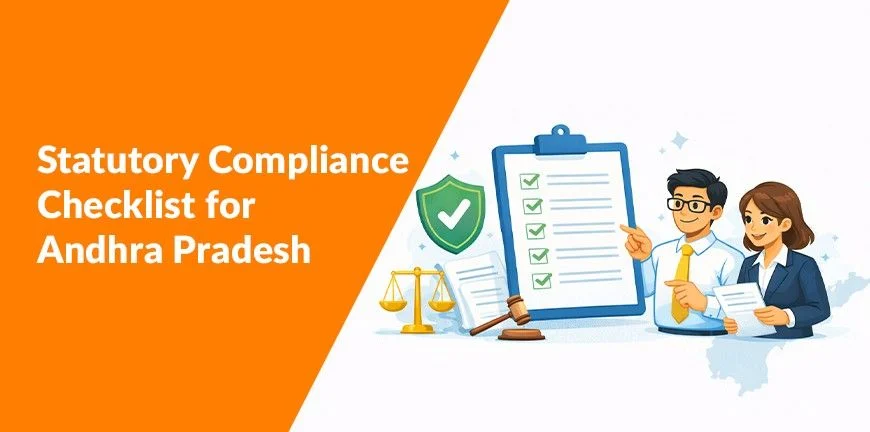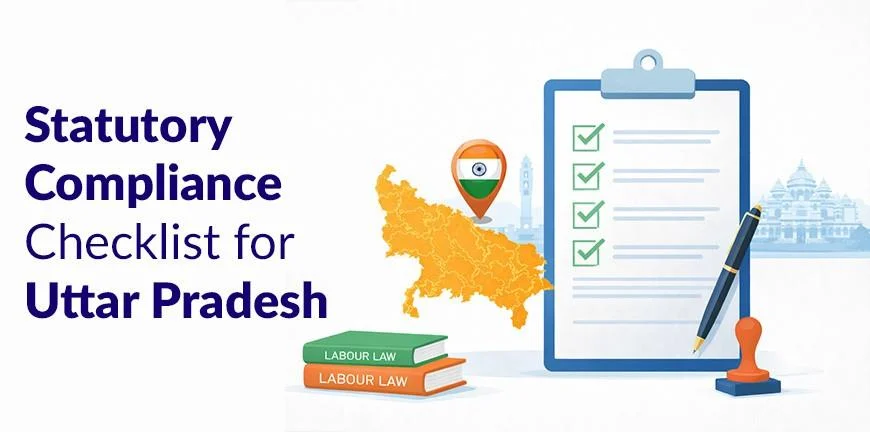
Saving the Candidate Experience – A Complete Guide
06/09/2023
Legal Compliance: The Importance of Legal Checking
14/09/2023- What is Compliance Management?
- Definition and Meaning
- What Is the Importance of Compliance Management?
- How does it differ from general risk management?
- Compliance management vs. compliance system
- Why Compliance Management Matters in 2025?
- The Compliance Management Process Explained
- What are the Common Challenges in Compliance Management?
- Tools and Systems That Support Compliance
- What are the Objectives of Compliance Management?
- Types of Compliance Your Business Must Address
- What are the Benefits of Compliance Management?
- Looking for a Compliance Management Partner?
- Key Takeaways
- Conclusion
- Frequently Asked Questions (FAQs)
“Regulatory compliance isn’t just about avoiding penalties—it’s about earning trust in the marketplace every single day.”- Ginni Rometty (Former CEO, IBM).
As a company, you may have the best workforce, technology, processes, and clientele, but without a strong compliance management program in place, enjoying continued success will be just a pipe dream. Even a minor violation, such as failing to keep a record of a single business transaction, can be costly in terms of legal expenses and damage to brand reputation.
Let’s simplify compliance management by offering you a complete step-by-step guide that covers all bases.
What is Compliance Management?
Compliance management represents the ongoing process of monitoring and evaluating systems to ensure your organization adheres to laws, regulations, industry standards, and internal policies. Additionally, this systematic approach protects businesses from regulatory violations that could result in costly penalties or reputation damage.
Definition and Meaning
Compliance management ensures your company follows rules set by governments, regulatory bodies, and industry organizations. It provides structured procedures, controls, and practices that keep your operations within legal boundaries. Also, this process helps identify potential compliance risks before they escalate into serious violations.
Think of compliance management as your business’s regulatory GPS. It guides your organization through the complex landscape of legal requirements while helping you avoid costly detours.
What Is the Importance of Compliance Management?
Compliance management is important because it helps companies avoid damage to their reputation, fines, and legal charges. Ensuring compliance has several advantages. Let’s discuss these in more detail now.
1. No Fines or Legal Charges
When a company is compliant with the laws set by the Government, it does not need to pay any hefty fines or legal charges. This means that the company can save a lot of money, not just on legal fees, but can ensure that its image is not tarnished by the legal charges brought against it in a court of law.
2. Improvement in the Company’s Reputation
The company’s reputation remains intact, and over time, could even improve as it stays committed to employee welfare and happiness, in line with statutory requirements. A good word of mouth will ensure that the reputation of the company improves over time, and the company can establish a good relationship not only with its employees but with customers, too.
3. The Company Is Eligible for Benefits
The Government of India, like most developing nations of the world, offers incentives to companies that want to venture into certain industries it is looking to develop and gain a good reputation. For this reason, too, companies need to be compliant because if they are not, they may not be considered eligible and could miss out on these incentives.
4. The Company Has Loyal Employees and Customers
As mentioned earlier, having a better brand reputation (because of being compliant) creates a work environment where employees are satisfied, as work hours are apt and salaries are paid on time. They have peace of mind and better composure and talk to customers in a better way, forging great relationships and bringing in much-needed revenue for your company.
5. Wins the Trust of Investors and Stakeholders
Investors and stakeholders are more convinced of the goodwill and believe that the trust and the confidence they had in the company are paying off, not just in terms of reputation but also as increased revenue for all the above reasons. They can also justify the stance they have on various issues and can quote the company as doing a great job, thanks to the good name the company has earned. This is an important point to remember when looking at the importance of compliance management.
How does it differ from general risk management?
Compliance and risk management serve distinct business functions. Compliance focuses on meeting established requirements through reactive, tactical approaches. On the other hand, risk management takes a more proactive, strategic stance, analyzing potential threats to determine which risks are worth taking. Also, compliance follows prescriptive pathways, while risk management requires extensive analysis and forecasting.
Both functions work together to protect your business, yet compliance management specifically ensures you meet mandatory requirements rather than making strategic risk decisions.
Compliance management vs. compliance system
A compliance management system (CMS) provides the practical framework that supports your overall compliance efforts. Compliance management represents a broader strategy, while CMS delivers specific tools, controls, and processes that automate and streamline compliance activities. Moreover, this integrated system maintains regulatory alignment through documentation, procedures, and oversight mechanisms.
Consider compliance management as your strategy and the CMS as an execution platform. Together, they create a comprehensive approach to regulatory adherence.
Why Compliance Management Matters in 2025?
Effective compliance management functions as a strategic business enabler rather than a regulatory burden. Also, organizations treating compliance as mere checkbox exercises miss significant opportunities for operational improvement and competitive positioning.
1. Protecting data and avoiding fines
Financial data reveals the true cost of compliance neglect. Companies typically spend 25% of revenue on compliance costs, yet non-compliance expenses reach INR 1250.52 million annually, nearly three times higher than proper compliance programs at INR 461.56 million.
Additionally, organizations implementing predictive risk models achieve 25% fewer compliance breaches while reducing costs by 40%. With data breaches averaging INR 375.49 million per incident, preventative compliance measures deliver measurable returns on investment.
2. Building trust with customers and partners
Strong compliance programs create tangible business advantages. Nearly one-third of organizations lose business opportunities due to missing compliance certifications. Meanwhile, 72% of businesses complete compliance audits specifically to secure new contracts.
The investment community recognizes regulatory adherence as a key indicator. Nearly three-quarters of institutional investors evaluate ESG compliance when making investment decisions. Also, top management support for compliance initiatives builds sustainable customer relationships and long-term loyalty.
3. Meeting global compliance standards
Cross-border regulations present complex challenges for growing businesses. Currently, around 77% of companies report negative impacts from compliance complexity, while 65% of global businesses identify regulatory pace as their primary operational obstacle.
Cybersecurity and data protection requirements continue expanding across jurisdictions. Also, companies maintaining agility in meeting evolving standards position themselves advantageously when capturing new market opportunities.
The Compliance Management Process Explained
Successful compliance management requires a systematic approach that transforms regulatory obligations into manageable business processes. Organizations need a structured framework that builds compliance capabilities step by step. Here is the compliance management process that works the best for the Indian regulatory landscape:
1. Identify legal and regulatory requirements
Start by mapping all regulations that apply to your business operations. Additionally, review international standards like ISO/IEC 27001, national laws such as GDPR or HIPAA, and industry-specific frameworks, including NIST for federal agencies or PCI-DSS for merchants. Moreover, conduct a regulatory landscape analysis based on your industry and geographic footprint. Include industry standards representing best practices, even when not legally mandated.
2. Assess current compliance status
Evaluate how your existing systems measure against identified requirements. Conduct risk assessments and gap analyses to pinpoint areas needing attention. Also, review current policies, procedures, and control mechanisms against regulatory standards. Interview key personnel across legal, HR, IT, and finance departments to understand operational realities and identify vulnerability points.
3. Develop policies and procedures
Create formal policies that address identified gaps while meeting regulatory requirements. These documents become your operational blueprint, guiding compliance efforts across all business functions. Also, write policies clearly and concisely for easy understanding throughout your organization. Moreover, define acceptable conduct and establish procedures that prevent violations before they create legal issues.
4. Implement technical and administrative controls
Deploy both technical controls, like encryption technologies, and administrative controls, such as incident response plans. These controls must enforce compliance while strengthening your overall security infrastructure. Also, install automated controls across systems, networks, and applications to monitor adherence continuously and flag deviations immediately.
5. Train employees and raise awareness
Build employee understanding through targeted training programs that explain each person’s role in maintaining compliance. Also, tailor training to specific departmental responsibilities and job functions. Regular training sessions ensure staff understand the importance and know how to implement controls properly.
6. Monitor, audit, and improve continuously
Monitor your environment constantly to detect potential issues quickly. Establish systems to track compliance activities, measure policy adherence, and identify emerging areas of non-compliance. Also, regular audits provide health checks for your compliance program, catching problems early while generating insights for performance improvement. Moreover, use audit feedback to adjust your approach, ensuring compliance efforts stay effective as circumstances change.
What are the Common Challenges in Compliance Management?
The compliance team faces real obstacles that can derail even the best-planned programs. These persistent challenges affect organizations across industries, regardless of size or resources.
1. Keeping up with changing regulations
The regulatory landscape shifts constantly, placing enormous pressure on your compliance teams. Chief Compliance Officers historically spent one-third of their time just tracking legislative changes. The volume alone creates problems: millions of new bills, proposed rules, and executive orders emerge annually at the central and state levels. Also, your team likely spends at least 4 hours weekly creating leadership reports, with 40% of compliance teams reporting this burden.
2. Managing compliance across departments
Siloed compliance approaches create dangerous gaps in your organization. When departments work in isolation, information sharing breaks down across functional lines. Your legal team focuses on regulatory requirements while IT teams handle control testing, but without coordination, critical vulnerabilities emerge. Also, cross-functional collaboration becomes essential for effective compliance management.
3. Balancing compliance and business operations
Strict compliance measures can slow your business operations, particularly in high-demand sectors. Your organization must constantly balance regulatory requirements against operational efficiency. The key lies in positioning compliance as a business enabler rather than an operational burden.
4. Data integrity and visibility issues
Without integrated visibility, identifying gaps in compliance tracking becomes nearly impossible. Staff shortages and limited expertise create barriers. Nearly 69% of firms report these as significant obstacles to achieving full visibility. Also, data integrity forms your compliance foundation, requiring completeness, consistency, and accuracy. Fragmented tools and organizational silos often create inconsistent views of your compliance status.
Tools and Systems That Support Compliance
Spreadsheets and manual processes cannot handle today’s complex compliance requirements. Technology solutions transform compliance management from a reactive burden to a proactive business advantage. Here are 4 major compliance management tools that offer the best outcomes:
1. Compliance management tools and software
Governance, risk, and compliance (GRC) platforms deliver structured frameworks for identifying, monitoring, and addressing compliance risks. These solutions provide policy development, control monitoring, workflow management, and case management capabilities. Additionally, modern platforms incorporate AI-powered features that simplify complex compliance tasks while strengthening security posture.
2. Automation and real-time monitoring
Automated compliance systems eliminate repetitive tasks, reduce human error, and accelerate response times. Advanced software provides real-time risk assessment and continuous monitoring, enabling rapid identification of potential breaches. Also, organizations report up to 40% reduction in compliance-related administrative work through automation.
3. Centralized dashboards and reporting
Well-designed compliance dashboards convert complex data into actionable business intelligence. Also, visual interfaces display color-coded indicators for urgent issues, drill-down capabilities for detailed analysis, and quick report generation features. Real-time updates ensure stakeholders have access to the current compliance status without delays.
4. Integration with existing business systems
Business operations typically involve 5-10 different software platforms daily. Effective compliance tools integrate seamlessly with existing systems like CRM, HRMS, and accounting software, creating unified workflows that eliminate data silos. This integration maintains security standards while streamlining compliance communications across organizations.
What are the Objectives of Compliance Management?
Compliance management achieves specific organizational objectives that protect and strengthen your business operations beyond simple rule-following.
Effective compliance programs start with clearly defined goals. Compliance management should identify and manage compliance risks while establishing a strong adherence culture throughout your organization. Also, compliance objectives must be specific, measurable, timely, and aligned with applicable regulations.
Well-structured compliance management programs enable your business to:
- Identify potential compliance risks and develop strategic pathways to manage these risks effectively.
- Streamline operational efficiency by integrating compliance into your business processes rather than treating it as a separate function.
- Build stakeholder trust by demonstrating your commitment to ethical practices and regulatory adherence.
- Gain a competitive advantage in the marketplace as customers increasingly value businesses that prioritize compliance.
Responsibility for compliance objectives requires clear distribution throughout your organization. The primary responsibility for establishing an independent and effective compliance culture rests with your board of directors. All employees share accountability for ensuring adherence to applicable laws and regulations.
Properly defined compliance objectives serve as your roadmap for minimizing legal exposure, safeguarding stakeholder interests, and protecting your company’s reputation.
Whether you operate in manufacturing, technology, or service industries, these objectives help you navigate an increasingly regulated business environment while maintaining operational excellence.
Types of Compliance Your Business Must Address
Your business operates within multiple compliance frameworks that vary by industry, location, and operational scope. Understanding these distinct categories helps you build more effective compliance management strategies.
External Compliance requires adherence to laws and regulations imposed by governing bodies. This breaks down into Statutory Compliance (laws passed by the government) and Regulatory Compliance (rules from regulatory bodies). Also, external compliance builds public trust and transparency.
Internal Compliance involves following the rules created by your senior professionals to maintain quality standards. These include board formation procedures, meeting protocols, and employee conduct guidelines.
Industry-specific compliance demands specialized knowledge across sectors. Financial institutions follow banking and securities regulations, while pharmaceutical companies adhere to medicines and cosmetics laws.
Your business operations will encounter these essential compliance categories:
- Environmental Compliance: Following laws that protect natural resources.
- Health and Safety Compliance: Ensuring safe workplace conditions.
- Data Privacy Compliance: Protecting personal information through laws like GDPR.
- Financial Compliance: Maintaining proper accounting standards and tax reporting.
Corporate risk professionals have evolved beyond basic “check-the-box” compliance, with 70% now adopting strategic approaches. This shift demonstrates how compliance management serves broader business objectives rather than simple regulatory adherence.
Each compliance type requires specific expertise and tailored procedures. Also, your compliance strategy should address all applicable categories while focusing resources on your highest-risk areas.
What are the Benefits of Compliance Management?
Here are the key benefits of Compliance Management:
- Compliance management creates measurable business value far beyond penalty avoidance. Small businesses face severe consequences from non-compliance. Nearly 60% close within six months of a cyberattack. Additionally, violations cost small businesses an average of INR 2,531,413.52 over five years.
- Smart compliance management drives operational efficiency gains. Moreover, organizations with strong security practices experience a 10% productivity improvement, enabling teams to focus on revenue-generating activities. Additionally, automated compliance monitoring reduces human error-related incidents by 80%.
- The time savings prove substantial. Compliance management software saves users approximately six hours weekly on manual tasks, freeing two months annually for business growth. Also, companies using compliance automation report nearly a 20% reduction in employee workload.
- Customer relationships benefit significantly from strong compliance programs. Currently, 84% of users show greater loyalty to businesses with robust security practices. Nearly half (48%) have stopped purchasing from companies over privacy concerns.
- Business opportunities depend on compliance credentials. Last year, 29% of organizations lost potential contracts because they lacked compliance certification. This demonstrates the competitive advantage strong compliance programs create.
- Centralized compliance management eliminates scattered documentation. Real-time dashboards monitor compliance levels across your organization, enabling better strategic decisions. Additionally, your business gains clarity, control, and competitive positioning through systematic compliance management.
Looking for a Compliance Management Partner?
Finding the right compliance partner can make all the difference for your business success. Only 24% of firms currently use compliance outsourcing to manage regulatory complexity, yet compliance partners bring specialized knowledge that helps you stay current with evolving standards while reducing costs and improving risk management.
ALP Consulting, a top-tier compliance management agency, understands your business needs and will leave no stone unturned to help you achieve your goals. As a leading compliance agency in India, we will remove compliance distractions, allowing you to build stronger client relationships, focus on business development, and scale operations without regulatory friction.
ALP will become an extension of your team, ensuring regulatory adherence while you focus on core business activities. If you are looking for a trusted compliance partner, contact us today.
Key Takeaways
- Compliance management is a strategic business imperative, not just a regulatory checkbox.
- Proactive compliance management saves significant costs compared to reactive approaches.
- Technology-driven compliance solutions streamline processes, reduce human error, and provide real-time monitoring capabilities that manual systems cannot match.
- Cross-functional collaboration is essential for effective compliance management.
- Regular audits and continuous monitoring help identify gaps before they become violations.
- Employee training and awareness programs are critical components of any compliance strategy.
- Documentation and record-keeping form the backbone of compliance management. Proper documentation protects your organization during audits and legal proceedings.
Conclusion
Compliance management represents far more than regulatory adherence; it’s a fundamental pillar of sustainable business success. Organizations that embrace comprehensive compliance strategies position themselves as trustworthy partners in their industries while protecting their long-term viability.
Follow the above compliance management guide diligently and achieve 100% compliance across the organization.
Frequently Asked Questions (FAQs)
1. What is compliance management, and why is it important?
Compliance management is a systematic approach to ensuring your organization adheres to all applicable laws, regulations, industry standards, and internal policies. It’s important because non-compliance can result in severe penalties, legal action, reputation damage, and business disruption.
2. What does a compliance manager do?
A compliance manager is responsible for managing the work of compliance specialists and risk analysts, and associates and ensuring that they are fulfilling their responsibilities. They not only need excellent management skills but also attention to detail.
3. How do I know which compliance requirements apply to my business?
Compliance requirements vary by industry, location, business size, and operational scope. Common areas include labor laws, tax regulations, data protection, environmental standards, and industry-specific requirements.
4. What are the biggest compliance challenges businesses face today?
The most significant compliance challenges include keeping up with constantly changing regulations, managing compliance across multiple jurisdictions, integrating compliance with business operations, ensuring employee awareness and training, maintaining proper documentation, and balancing compliance costs with business objectives.
5. How can technology improve compliance management?
Technology transforms compliance management through automated monitoring, real-time reporting, centralized documentation, workflow automation, and predictive analytics.
6. What are the 7 pillars of compliance?
The 7 pillars of compliance are written policies and procedures outlining compliance, governance, and oversight with a senior compliance officer, training employees and managers on compliance, open lines for communication, prompt response to any detected problems, internal auditing, and disciplinary guidelines.
7. What happens if my business fails to maintain compliance?
Non-compliance consequences can be severe and include financial penalties, legal action, business license revocation, operational shutdowns, reputation damage, loss of customer trust, and difficulty securing future business partnerships.
8. How often should we review and update our compliance programs?
Compliance programs should be reviewed continuously, with formal assessments conducted at least annually or whenever significant business changes occur. Additionally, regulatory landscapes change frequently, and your compliance program must evolve accordingly.
9. What role do employees play in compliance management?
Employees are your first line of defense in compliance management. They must understand applicable regulations, follow established procedures, report potential violations, and participate in ongoing training programs.
10. How do we measure the effectiveness of our compliance program?
Effectiveness can be measured through various metrics, including audit results, incident reports, training completion rates, policy adherence levels, regulatory inspection outcomes, and cost savings from prevented violations.
11. What should we look for when choosing a compliance management partner?
Look for partners like ALP Consulting with proven industry expertise, comprehensive service offerings, technology-enabled solutions, strong track records, and cultural alignment with your organization.
12. Why should you outsource labor law compliance?
Labor law compliance is not easy to manage. With the right tools and knowledge on how to use them, you can get an advantage in compliance management. When you outsource labor law compliance management to a third party, you can expect perfection.

Hariharan Iyer
Hariharan Iyer is the Vice President – Operations at ALP Consulting, bringing over 40+ years of experience in HR outsourcing and labour law compliance. He leads end-to-end HRO operations, ensuring process efficiency, statutory compliance, and seamless service delivery for clients across industries. With a strong background in labour law governance and workforce management, Hariharan plays a key role in driving operational excellence and compliance-led HR solutions at ALP Consulting.




